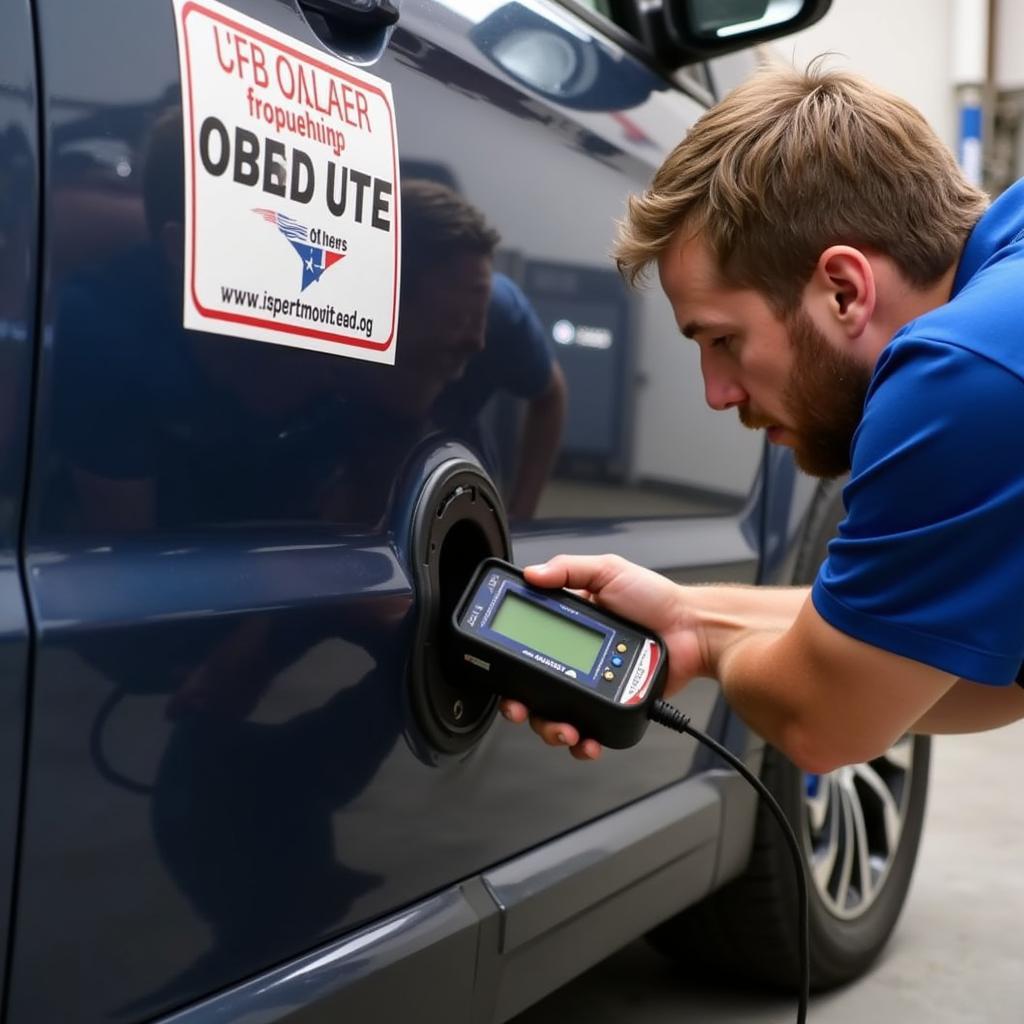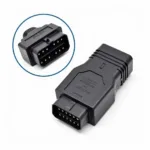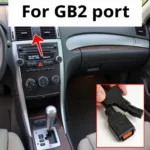If you’re a car owner in Texas, you know the annual safety and emissions inspection is a must. A key part of this inspection for many vehicles involves the OBD2 system and its onboard monitors. These monitors keep tabs on your car’s emissions system, ensuring it’s running cleanly and efficiently. But just how many of these monitors are checked during a Texas OBD2 inspection? Let’s break it down.
Understanding OBD2 Monitors
Your car’s engine control unit (ECU) uses various sensors to monitor different aspects of your emissions system. These include:
- Oxygen (O2) Sensors: These measure the oxygen content in your exhaust, helping to regulate the air-to-fuel mixture for optimal combustion.
- Catalytic Converter Monitor: This checks the efficiency of your catalytic converter, which plays a crucial role in reducing harmful pollutants.
- Evaporative Emissions System Monitor: This monitors your car’s fuel system for vapor leaks, ensuring harmful fumes aren’t released into the atmosphere.
Each of these systems has a corresponding OBD2 monitor. When you drive, these monitors run in the background, collecting data and checking for any malfunctions. If a problem is detected, the monitor will set a “pending” code. If the issue persists, the code will become “confirmed” and your check engine light will illuminate.
Texas OBD2 Inspection Requirements
The number of monitors required for a passing inspection in Texas depends on the year of your vehicle:
- Vehicles 1996-2000: Only the misfire monitor is required.
- Vehicles 2001 and newer: Require all monitors to be ready except for one continuous monitor.
What does “ready” mean? It signifies that a monitor has completed its diagnostic cycle and found no issues. A monitor can be “not ready” for several reasons:
- Recently cleared codes: If you’ve recently cleared your codes, the monitors need time to run their tests again.
- Battery disconnection: Disconnecting your battery can also reset the OBD2 system, requiring the monitors to run through their cycles.
- Driving habits: Short trips or infrequent driving can prevent monitors from completing their tests.
The Importance of Monitor Readiness
It’s important to note that even if your check engine light isn’t on, you can still fail an OBD2 inspection if your monitors aren’t ready. This is because the inspection system can’t verify the health of your emissions system without complete data from the monitors.
Pro Tip from John Miller, ASE Certified Master Technician: “Don’t wait until the last minute to get your car inspected. If your check engine light is on or your monitors aren’t ready, it’s best to get it diagnosed and repaired well in advance.”
Frequently Asked Questions
Q: How can I check if my OBD2 monitors are ready?
A: Many OBD2 scanners, even affordable ones, can display monitor status.
Q: What if one of my monitors won’t set to “ready”?
A: This could indicate an underlying issue within the corresponding system. It’s best to have a qualified mechanic diagnose the problem.
Q: Can I drive my car with a “pending” code?
A: While a “pending” code won’t necessarily prevent you from driving, it’s best to get it checked as it signals a potential problem.
Q: Do all vehicles have the same OBD2 monitors?
A: The specific monitors and their readiness requirements can vary slightly depending on the year, make, and model of your vehicle.
Conclusion
Passing your Texas OBD2 inspection requires ensuring your vehicle’s emissions system is in good working order and that the necessary monitors are ready. By understanding these requirements and taking proactive steps to address any issues, you can confidently pass your inspection and keep your car running cleanly and efficiently.
For more information on OBD2 scanners and troubleshooting tips, browse through our other informative articles. Need personalized assistance? Contact our expert team via WhatsApp: +1(641)206-8880 or Email: [email protected]. We’re available 24/7 to help you with all your car diagnostic needs.


